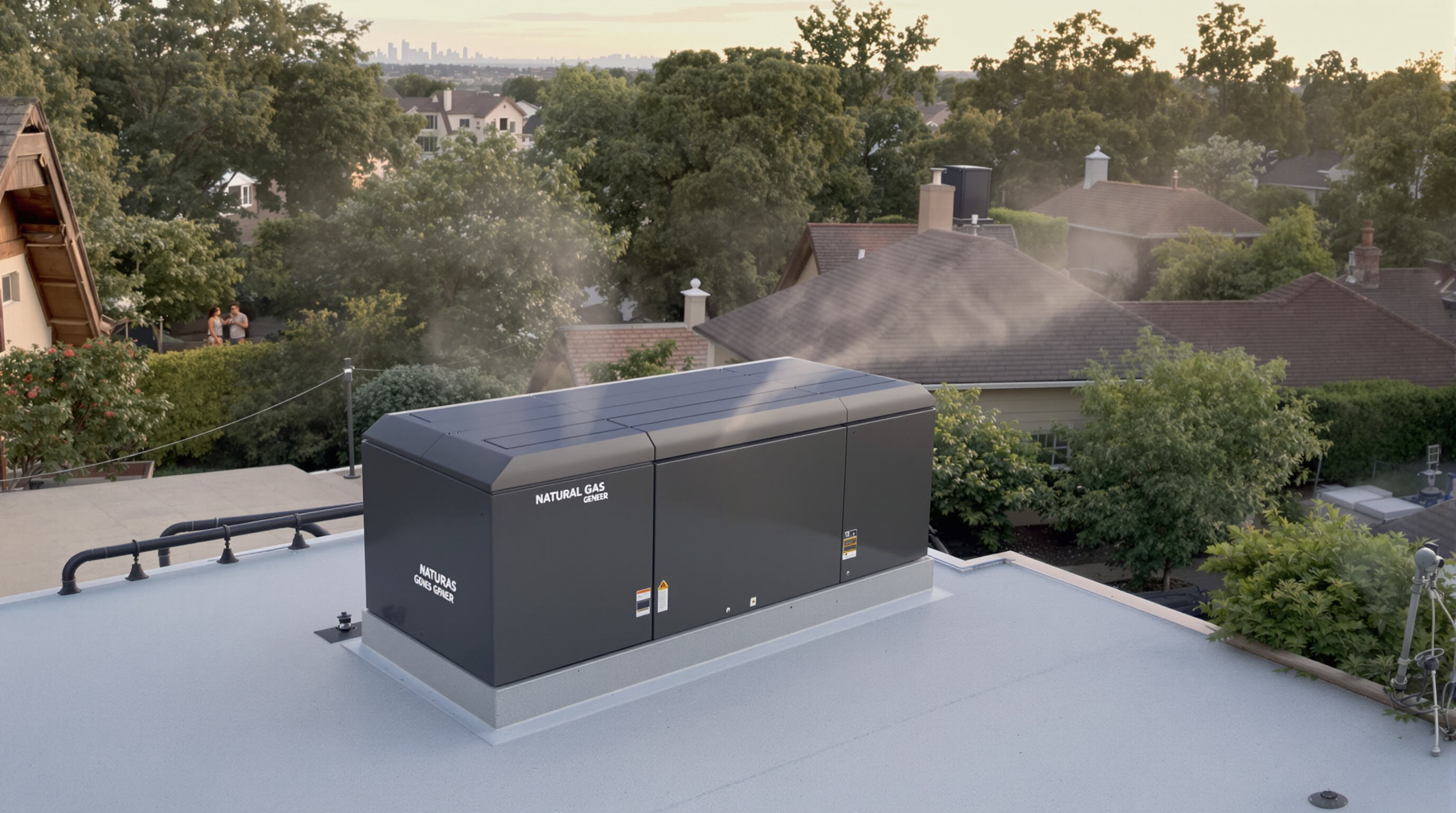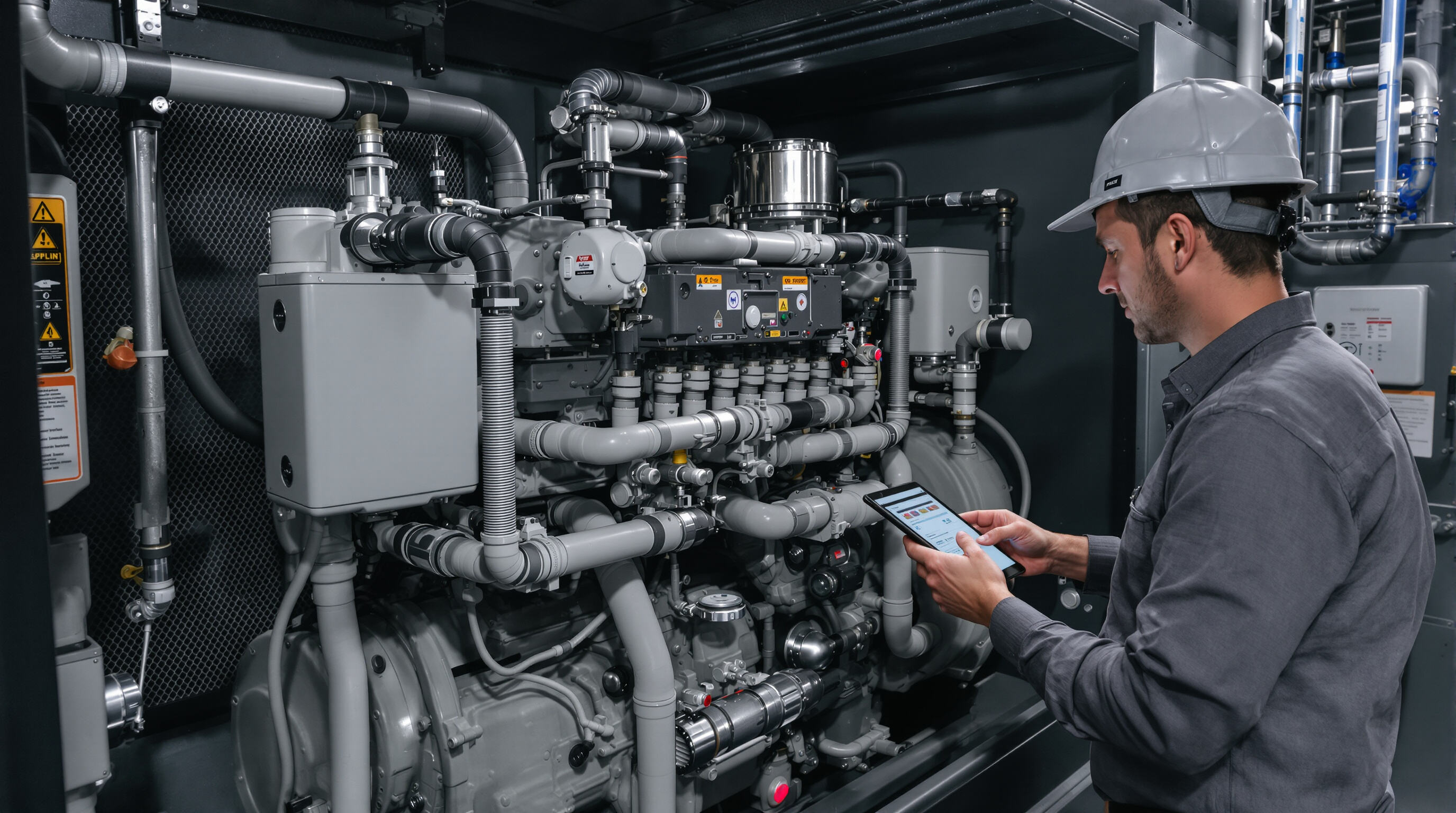The Advantages of Natural Gas Generators
Environmental Benefits and Lower Emissions

Cleaner Combustion and Reduced Carbon Footprint
Compared to diesel or gas engines, natural gas generators put out way fewer emissions. The EPA says they emit somewhere around 50 to maybe even 60 percent less CO2 for every kilowatt hour produced. And when it comes to burning stuff up, natural gas burns cleaner too. We're talking about cutting down on nitrogen oxides by as much as 80% over those old diesel models. There's just not much soot hanging around, no sulfur smell, and definitely less of that fine dust stuff in the air. For folks looking at backup power options for their homes, natural gas makes sense from an environmental standpoint. It helps cut down on overall carbon emissions without sacrificing performance, which is pretty important these days when everyone's trying to do their part for the planet.
Impact on Local Air Quality in Residential Areas
Natural gas generators have much cleaner emissions compared to traditional options, which makes a real difference for air quality in residential areas. This becomes even more important during long power outages when several backup systems might be running at once. These units don't produce visible smoke like diesel generators do, and they avoid releasing those nasty sulfur compounds that contribute to smog formation. Studies from cities across the country indicate about a 30 to 40 percent reduction in local pollution levels where these generators are installed. Cleaner air means fewer respiratory issues for people living nearby, plus there's less damage to plants and buildings over time in crowded urban settings.
Addressing Methane Leakage Concerns with Modern Generator Technology
Today's natural gas generators come with some pretty smart engineering that helps cut down on methane leaks, which remains a big environmental issue for many people. The newer models have things like better fuel injectors that spray just the right amount of gas, automatic valves that shut off when needed, plus stronger seals around all the connections. These improvements mean they burn fuel at around 99.5% efficiency now, and studies show they leak about 90% less methane than what we saw in equipment from even five years ago. As long as operators keep up with regular maintenance checks, these machines run much cleaner than before. That makes them a decent option for backup power needs while still being somewhat eco friendly compared to other alternatives out there.
Low Maintenance and Longer Equipment Lifespan

Reduced Engine Wear Due to Cleaner Fuel Combustion
Natural gas generators tend to have much less internal wear because they burn cleaner than other fuels. Without all that soot and carbon buildup messing things up, parts like pistons, valves, and injectors stay in better shape for longer periods. Service intervals actually get extended somewhere around 30 to maybe even 50 percent compared to traditional setups. What does this mean practically? Fewer oil changes needed, spark plugs last longer too, and overall maintenance costs drop off quite a bit over time. According to what we see in the field, most natural gas powered systems don't need major overhauls until they hit about 1,500 to 2,000 hours of operation. That puts them ahead of their liquid fuel competitors in terms of reliability and cost efficiency.
No Fuel Storage, Spoilage, or Refilling Hassles
Natural gas generators hook right into existing utility lines, so there's no need to store fuel onsite anymore. This cuts down on all sorts of problems that come with storing diesel or gas tanks - things like old fuel going bad, getting contaminated, or those metal tanks rusting out over time. For people living in areas prone to severe weather, not having to run out and refill tanks during storms is a huge relief. No more worrying about running out when the power goes down or dealing with delivery delays after hurricanes hit. Since the fuel just keeps coming from the main line, these systems run reliably without anyone needing to check on them every day. That makes owning one much simpler than traditional backup generators, plus saves money in the long run because there's less maintenance involved.
Case Study: Maintenance Logs from 100 Residential Installations Over 3 Years
Looking at maintenance records for about 100 homes with natural gas generators installed over three years shows these systems are pretty reliable. The average unit needed service only around 0.8 times per year mostly for regular checkups compared to diesel generators which require service about 1.5 times yearly. When it comes to problems, only about 3 out of every 100 maintenance calls were related to fuel issues whereas diesel units had this problem in nearly 27 cases out of 100. Most people expect their natural gas generators to last between 18 and 22 years. That's roughly 30 to 50 percent longer than diesel models because there's less wear on the engines and no worries about fuel going bad over time.
Energy Independence and Quiet, Safe Residential Operation
Eliminating On-Site Fuel Storage and Associated Risks
Natural gas generators get their fuel straight from city pipelines, so there's no need for those big storage tanks sitting around outside or buried underground somewhere. This setup cuts down on all sorts of problems like fuel leaks, spills that can mess up the environment, plus it makes things safer against fires and saves money on insurance costs too. When bad weather hits, homeowners don't have to worry about running out of fuel or dealing with the hassle of refilling tanks in the middle of a snowstorm or flood situation. Since the fuel comes right through the pipes, these generators keep working even when folks are stuck inside trying to stay warm or dry during extreme weather events.
Quieter Operation Enhances Neighborhood Compatibility
Natural gas generators run around 60 to 70 decibels, about the same as talking normally. That makes them way quieter compared to diesel generators that typically go over 80 dB. Most towns have rules about noise levels for homes, and these generators fit within those limits pretty well. People living nearby won't get bothered much even if there's an outage lasting several days. Since they don't make much noise or vibrate, folks can actually install them close to where people live or put them in apartment buildings. This means better access to backup power without making life uncomfortable for anyone around, plus staying on the right side of local regulations too.
Case Study: Urban Homeowners During Winter Storms
When the big winter storm hit Chicago in 2023 and knocked out power to around 200,000 homes for nearly a week, something interesting happened. About 150 families who had natural gas generators kept their heat running, food cold, and critical medical devices working just fine. Neighbors didn't complain about noise at all, which is surprising given how loud some backup systems can be. Fire departments also didn't get any reports of carbon monoxide leaks during this time, unlike what happens in neighborhoods where people rely on those old gas-powered generators they drag out when the power goes down. The biggest plus? These gas lines never ran dry, so nobody had to brave the blizzard conditions to refill fuel tanks. That alone makes a huge difference in safety and peace of mind, especially in densely populated cities like Chicago where space is tight and weather emergencies happen more frequently than anyone wants.
FAQs
What are the environmental benefits of natural gas generators?
Natural gas generators significantly reduce carbon emissions, emit fewer pollutants, and improve local air quality compared to traditional diesel or gas engines.
How do natural gas generators impact air quality in residential areas?
Natural gas generators have cleaner emissions, reducing local pollution levels and minimizing respiratory issues for nearby residents.
What advancements have been made to reduce methane leakage in modern natural gas generators?
Modern natural gas generators boast improved engineering features such as better fuel injectors, automatic shut-off valves, and stronger seals to minimize methane leakage.
What maintenance advantages do natural gas generators offer?
Natural gas generators experience less wear and tear, leading to extended service intervals, reduced maintenance costs, and a longer lifespan.
Why is fuel storage not a concern with natural gas generators?
Natural gas generators connect directly to city pipelines, eliminating the need for on-site fuel storage and reducing risks associated with fuel leaks and spoilage.
How do natural gas generators enhance neighborhood compatibility?
With quieter operation compared to diesel generators, natural gas generators ensure minimal noise disturbance, making them ideal for residential areas.
Are natural gas generators safer during natural disasters?
Yes, during severe weather events, natural gas generators maintain reliable fuel supply through pipelines, reducing risks associated with fuel storage and refilling.
Table of Contents
- The Advantages of Natural Gas Generators
- Environmental Benefits and Lower Emissions
- Low Maintenance and Longer Equipment Lifespan
- Energy Independence and Quiet, Safe Residential Operation
-
FAQs
- What are the environmental benefits of natural gas generators?
- How do natural gas generators impact air quality in residential areas?
- What advancements have been made to reduce methane leakage in modern natural gas generators?
- What maintenance advantages do natural gas generators offer?
- Why is fuel storage not a concern with natural gas generators?
- How do natural gas generators enhance neighborhood compatibility?
- Are natural gas generators safer during natural disasters?

